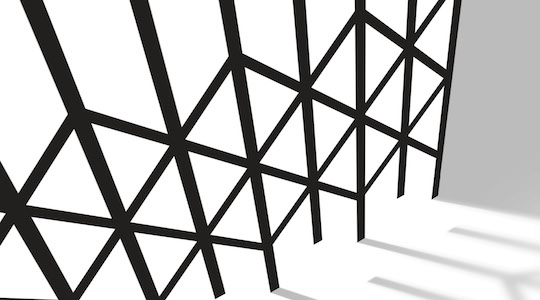As the Baltic countries are this year’s Market Focus at the London Book Fair, we continue our showcasing of Lithuanian literature this week with a review of a Lithuanian modernist classic. This showcase has been made possible by Lithuanian Culture Institute.
White Shroud by Antanas Škėma, translated from the Lithuanian by Karla Gruodis, Vagabond Voices, 2018.
Reviewed by Erik Noonan, Assistant Editor
White Shroud (1958), the best-known work and the only novel by Lithuanian artist Antanas Škėma (1910-1961), presents the life story of a poet named Antanas Garšva as he arrives at the threshold of adulthood. The novel is told through stream-of-consciousness interior monologue, journal entry, and omniscient third-person narration, arranged according to the association of ideas, rather than the conventions of rhetoric. This work is a befitting emblem of an art which lends enduring shape to adversity.
Garšva grows up in the town of Kaunas as the only child of two teachers, a mother “of noble birth” and a “charming liar” of a father. Neither of his parents is faithful to the other, and he witnesses the dissolution of their marriage, his mother’s descent into dementia and his father’s decision to place her in a sanitarium. Throughout an indigent existence the character adheres to a bohemian way of life, as variously as possible, doggedly. Škėma presents his story in a mode apt to the character, the mode Modernist, the language Lithuanian, the stance postglobal.
Antanas Garšva’s ignorance of ideology—which, of course, we should be cautious about equating with Antanas Škėma’s lack of interest in it—amounts to an aesthetic stance vis-à-vis existential imperatives, rather than a response to a climate of opinion. This demurral is of course also, more importantly, an attribute common to many works of literary Modernism, a fact that will resonate for the Anglophone reader who has had few opportunities to get to know Lithuanian creative writing.
Published in 1958, White Shroud strikes one as perforce a late-style iteration of that body of methods and concerns: readers of the Symbolists onward will recognize the tropes and tones of Woolf, Rimbaud, Lawrence and Joyce, among others, in the narrative’s dreamlike stasis, its intertextuality and allusiveness, its irony, its recursive circling chronology, its telescopic shifts of perspective, and its interiority. These performances are inextricable from a Communist-era Eastern European tradition, one of whose set pieces is in evidence here, in the form of an interrogation scene taking place after the country has been delivered from one savage despot to another, as the Nazi occupation gives way to the Soviet. Moreover, Garšva is admitted to a mental hospital following a head injury granted to him courtesy of his interrogators, when he refuses to write a poem the way he is told, and with the onset of seizures, and the prescription of sedatives, the subject of madness enters the narrative, in a way that is far from Romantic.
We have so little Lithuanian literature available in English translation—only O.V. de L. Miłosz, Tomas Venclova and Ričardas Gavelis come to mind—that it’s important to note translator Karla Gruodis’s efforts as a creator of knowledge, and those of Vagabond Voices as a transmitter of knowledge, in increasing our store of literary techniques and pleasures. Gruodis has rendered the original into a prose that evokes no single precedent, but rather strikes us as partaking of the spirit of a movement, a body of assumptions, that surmounts national borders and ideological barricades, to assert the common cause of a literary imagination: “If we’re now talking about spiritual matters,” Garšva tells Elena in the backseat of her husband’s Studebaker, “I would hazard to say that details illuminate an atmosphere.”
Erik Noonan is from Los Angeles, California, USA. He is the author of the poetry collections Stances and Haiku d’Etat. His writing is featured in a variety of publications, including the anthology Cross Strokes: Poetry Between Los Angeles and San Francisco. For more, please visit eriknoonan.net.
*****
Read Lithuanian literature featured in Asymptote:

